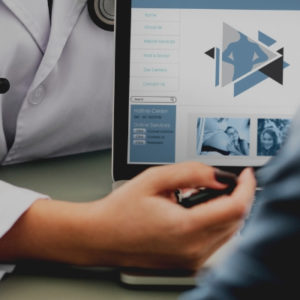Are allied health services GST-free? Some yes. Some no. The answer takes you on a long journey up and down Subdiv 38-B of the GST Act.
Allied Health Services and GST
The GST Act doesn’t actually use the term ‘allied health’. And allied health doesn’t even have a universally accepted definition anyway. But most agree that allied health professionals provide direct patient care and specialised support, but are neither medical practitioners nor approved pathology practitioners.
All legal references in this article are to the A New Tax System (Goods and Services Tax) Act 1999 – in short GST Act – unless otherwise specified.
Subdiv 38-B
Allied health services are GST-free if they meet one of the exemptions in Subdiv 38-B. The exemptions in Subdiv 38-B roughly fall into five categories – hospital – aged care – disability – medical services and general health services.
The services of an allied health professional might be GST-free when working in a hospital (s38-20) or in aged care, be it residential care (s38-25), home care (s38-30) or flexible care (s38-35).
And they might be GST-free when working in disability services, be it disability support provided to NDIS participants (s38-38) or specialist disability services (s38-40).
The GST status of these services depends on other legislation to define the scope of services. And that is a chapter in itself.
But outside of these settings, there are two more possible exemptions for allied health services. The most prevalent exemption is in s38-10 for so-called ‘other health services’. The less relevant one is in s38-7 when qualifying as a medical service.
Other Health Services
Other health services are usually supplied by allied health professionals. They are GST-free under s38-10 GST Act if they meet four conditions.
Condition # 1 – Service of a kind specified
There are 21 other health services specified in s38-10. They are:
# 1 Aboriginal or Torres Strait Islander Health, # 2 Acupuncture, # 3 Audiology and audiometry, # 4 Chiropody, # 5 Chiropractic, # 6 Dental, # 7 Dietary, # 8 Herbal medicine (including traditional Chinese herbal medicine), # 9 Naturopathy, # 10 Nursing, # 11 Occupational therapy, # 12 Optometry, # 13 Osteopathy, # 14 Paramedical, # 15 Pharmacy, # 16 Psychology, # 17 Physiotherapy, # 18 Podiatry, # 19 Speech pathology, # 20 Speech therapy and # 21 Social work
Condition # 2 – Supplied by a recognised professional
Recognised professional is defined in s195-1. In simple terms it means being accredited, registered or licenced in the relevant area of expertise and if there is no such thing, then being a member of a relevant professional association.
Condition # 3 – Accepted as necessary for appropriate treatment
The GST Act doesn’t define the term ‘appropriate treatment’. But there is a legally binding public ruling in which the Commissioner defines the term.
10. …’appropriate treatment’ will be established where the recognised professional assesses the recipient’s state of health and determines a process to pursue, in an attempt to preserve, restore or improve the physical or psychological wellbeing of that recipient insofar as that recognised professional’s particular area of training allows and will include subsequent supplies for the determined process.
Condition # 4 – Treatment of recipient of supply
All is good if the patient is the recipient of the supply. The patient receives treatment and then pays for that treatment.
But if a third party is involved, then things are more complicated. At face value the third party paying for the service is the recipient of the supply. So the supply is no longer a health service and hence not GST-free under s38-10.
But there is s38-60. If a health service would have been GST-free under Subdiv 38-B apart from the issue of supply, then s38-60 can fix this for three types of schemes: Insurance like private health insurance s38-60 (1) as well as compulsory third party schemes like workers comp s38-60 (2) and governement agencies like Medicare and NDIS s38-60 (3).
Section 38-60 only applies to services that would already be GST-free if it wasn’t for the issue of supply.
Now this is usually where you stop. Most allied health services either qualify under s38-10 as other health services meeting all 4 conditions or they don’t qualify at all. But sometimes there is one other option. To qualify as a medical service.
Medical Services
If an allied health service outside of hospital, aged care and disability doesn’t qualify as an other health service, there is a tiny back door nevertheless. The allied health service might count as a medical service.
Medical services are GST-free per s38-7 GST Act. Allied health professionals usually don’t provide medical services. But they do if covered by Medicare or pass a separate test.
Covered by Medicare
Whenever Medicare pays for a service – be it an allied health service or else – it counts as a medical service under s195-1.
Alternative test if not covered by Medicare
But if Medicare doesn’t pay, the health service can still qualify as a medical service under three conditions under s195-1.
Condition # 1 – By or on behalf of practitioner
The service must be provided by a medical or approved pathology practitioner or on their behalf. On behalf means that the service becomes part of the practitioner’s supply. It is done on their behalf. They invoice it and are accountable for it. On behalf doesn’t mean a referral.
Condition # 2 – Necessary for the appropriate treatment
The profession must accept the service as being necessary for the appropriate treatment of the recipient. So there it is again – appropriate treatment. The same legally binding public ruling applies to other health services as well per para 13.
Condition # 3 – Treatment of the recipient of the supply
The person receiving the treatment must be the one receiving the supply. And if they don’t, then s38-60 might save the day.
So when an allied health service meets these three conditions or is covered by Medicare, it counts as a medical service and is hence GST-free.
Summary
So all up there are five ways for an allied health service to be GST-free. It is either part of a hospital treatment or an aged care or disability support service. Or otherwise outside of these facilities and schemes, allied health services are GST-free if they meet all four conditions in s38-10. And if they don’t, there is still an option to count as a medical service through s38-7 and s195-1.
MORE
Disclaimer: Tax Talks does not provide financial or tax advice. All information on Tax Talks is of a general nature only and might no longer be up to date or correct. You should seek professional accredited tax and financial advice when considering whether the information is suitable to your or your client’s circumstances.
Last Updated on 27 May 2019



